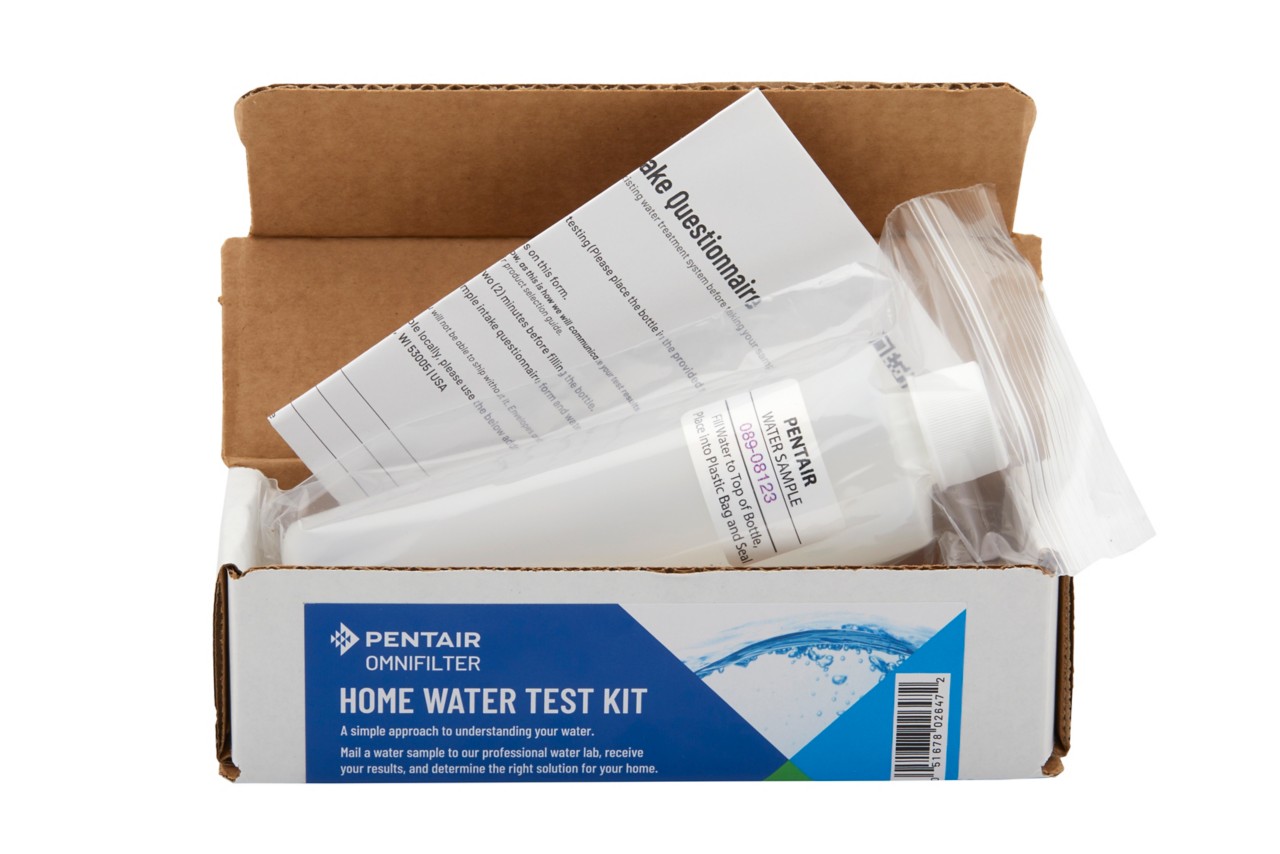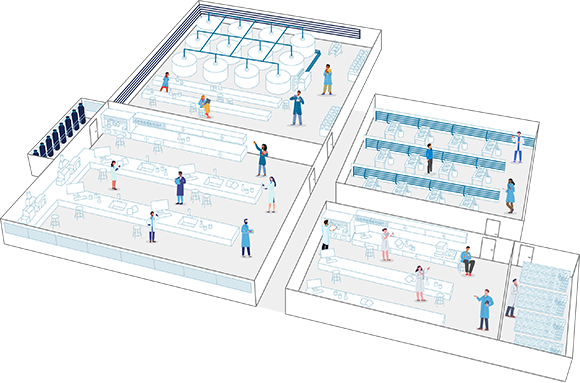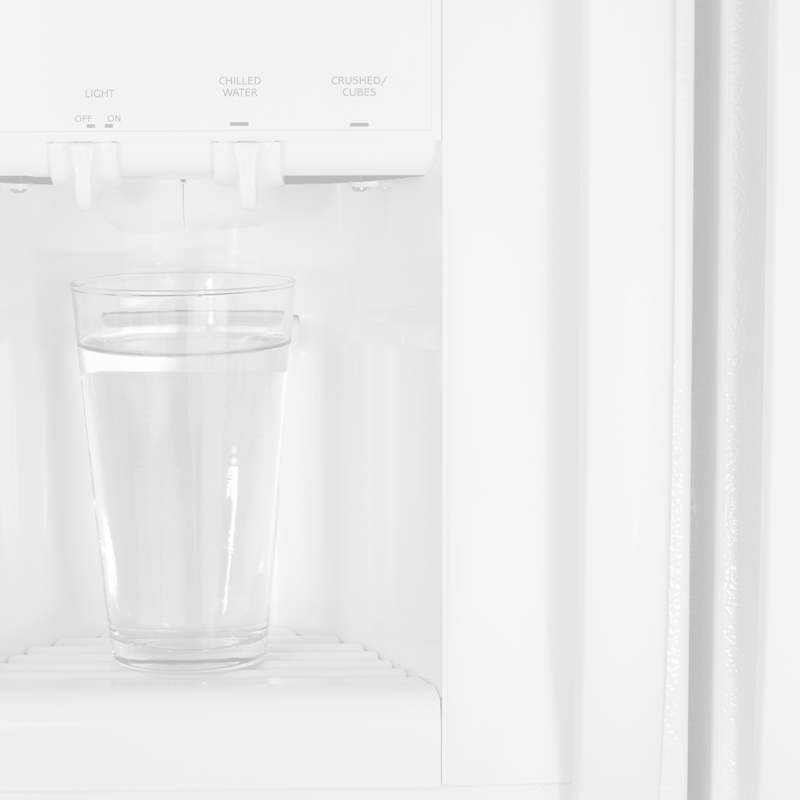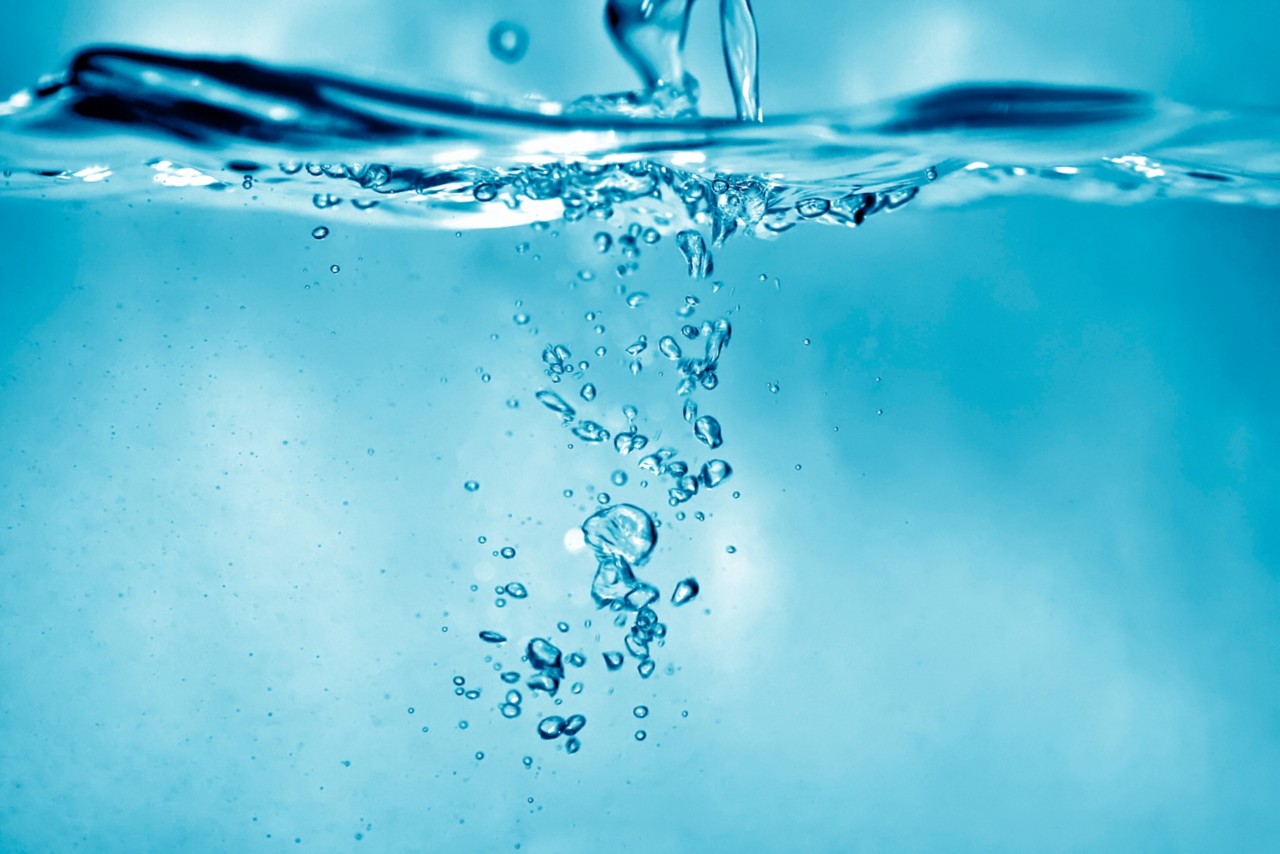Stop Wasting Water and Money. FIND A LOCAL PRO
Cool and refreshing water from the fridge. It may taste great, but just how effective is a fridge filter? After all, a refrigerator is designed to chill groceries, not eliminate contaminants from your water supply.
How Refrigerator Water Filters Work
The big question at hand — is fridge water filtered? Yes, but maybe not in the same way you're used to.
Most built-in refrigerator filters use activated carbon as a filtration medium. The process is quite simple. As water flows through the filter, contaminants stick to the carbon in the filter, removing them from the water. Activated carbon is honeycombed with nooks and crannies, so it provides a large surface area for catching these unwanted particles.
It's an effective system, but it's not foolproof. You need to consider both the size and length of time the water is in contact with the filter. Obviously, bigger filters are able to catch more contaminants and won't fill up as quickly. The filter in your fridge? It won't be that large.
The length of time water spends in contact with the filter is also crucial. You want the water to really have time to soak so the carbon can do its job. Unfortunately, most fridges just don't have the capacity for this.
What's in your water?
start here
Worried about your water? Take control with our at-home water test kit. We'll analyze your water and recommend the best filtration or softening solution for your specific needs.

What Gets Filtered? And Do These Water Filters Remove Minerals?
The activated carbon in your filter typically comes from charcoal. What is a charcoal water filter? It's basically made of small, crushed up pieces of charcoal that work to attract and absorb a number of contaminants.
So what does a charcoal water filter remove? You'll be pleased to know it can do a good job of reducing numerous unwanted elements, including:
- Chlorine
- Volatile organic chemicals
- Radon
- Benzene
- Other man-made chemicals
We are water Experts
Water quality is non-negotiable. To prove it, we've built state-of-the-art water quality labs and filled them with the best and brightest scientists — all so we can provide you with the best water of your life.

The result? Water that tastes and smells better. Within the limits of their small size, built-in refrigerator filters do a fair job, but they're less effective than larger systems. Activated charcoal alone isn’t enough to remove all waterborne contaminants. Fridge filtration misses a wide range of inorganic contaminants and heavy metals, including:
- Arsenic
- Barium
- Beryllium
- Cadmium
- Chromium
- Copper
- Fluoride
- Mercury
- Nickel
- Selenium
- Sulfates
- Thallium
Highly specialized activated charcoal filters can remove lead, but such filters are rarely found in refrigerator units. Instead, you might consider an upgrade to something more powerful, like a whole house water filter.

Water 101
Unleash the secrets of your H2O! Explore where water originates and discover the various water filtration solutions that transform it into drinkable water.
Related Articles

Water-Based Home Maintenance Checklist
Are you compiling your home maintenance checklist? Don’t neglect…

5 Things Chlorine can damage
If you have public water, chances are it contains chlorine..

7 Signs Your Need a New Water Softener or Filter
In an ideal world, every glass of water you pour…
Disclaimer: The information on this website has not been reviewed by the FDA. Products offered for sale herein are not intended to treat, cure or prevent any disease or health condition. No medical claims are being made or implied. Contaminants mentioned are not necessarily in your water.




